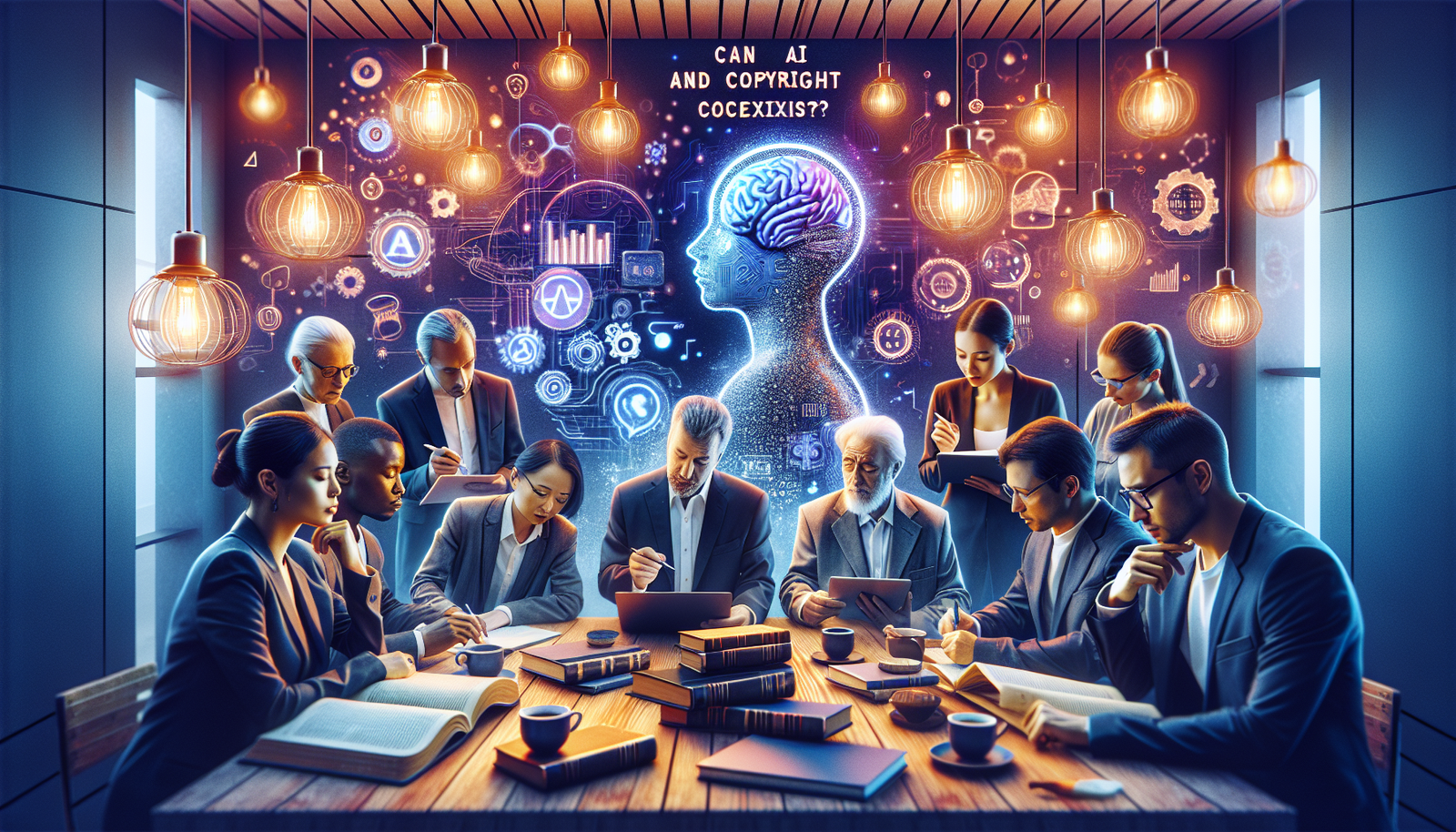The challenges posed by the centralization of AI
The rapid rise of artificial intelligence (AI) technologies raises growing concerns about copyright. The lack of adequate protection for content creators generates significant questions about the fair management of their works. These concerns gain traction as AI companies freely exploit protected resources without offering compensation to authors.
In 2024, OpenAI, the most prominent AI company, admitted to using copyrighted materials to train its ChatGPT model. This admission raises a fundamental question: how to balance technological innovation with the rights of content creators? The excesses of centralized AI directly affect creators, who are sidelined from the benefits generated by their own works.
The controversies surrounding copyright and AI
The majority of AI models, including those claiming open-source status, heavily exploit data from the internet without regard for their legal status. Copyright laws aim to protect authors of original works against abusive exploitation. Yet, many developers argue that their use of online content falls under “fair use,” a vague notion in law.
Many artists and authors have thus engaged in legal actions to defend their rights. High-profile cases, such as the one led by the New York Times against OpenAI, illustrate this growing conflict. The lawsuit highlights that OpenAI allegedly ingested thousands of articles for its training, neglecting the rights of creators and creating unfair competition.
The necessity of a decentralized model
The increasing concerns about copyright violations are fueling interest in decentralized AI models. Projects like those proposed by the ASI Alliance open up innovative perspectives, where content creators retain control over their data. These initiatives aim to develop systems where everyone can be rewarded fairly for the use of their work.
Interesting are the approaches that allow the integration of blockchain-based solutions, thus ensuring data traceability and allocated compensations. This framework could provide an alternative to current practices, allowing for a fair redistribution of revenues generated by AI while respecting the rights of creators.
Actions taken by industry stakeholders
In response to rising criticism, some AI companies are beginning to formalize licensing agreements with publishers and media. OpenAI has already signed agreements with several major publications, such as Financial Times and Associated Press. These agreements aim to regulate the use of content in the development of AI models. However, the amount of these agreements often remains insufficient relative to the actual value of the works.
The relevance of these arrangements for smaller content creators remains in question. Many bloggers, influencers, and artists remain excluded from compensation schemes, illustrating a persistent imbalance in the current AI ecosystem.
The path to fair regulation
The debates surrounding copyright and AI highlight the urgency of creating appropriate legal frameworks. Discussions about the necessary legislation to protect creators’ rights are emerging, with a need to clarify what constitutes fair use. These reflections are feeding the evolution towards more transparent decentralized systems, allowing for a real appreciation of creators’ contributions.
The case of Penguin Random House, which is implementing measures to protect its books from unauthorized use by AI, underscores a growing awareness among industry stakeholders of the need for increased control over their creations. The legal challenges posed by AI require an appropriate response to ensure that technological innovations do not come at the expense of creators’ fundamental rights.
The need for an ethical framework for the use of AI then becomes paramount, in a context where the excesses of exploitation cannot be ignored. Decentralized alternatives could signify a paradigm shift, a step towards a future where artistic creations are respected and valued appropriately.
Frequently asked questions about copyright concerns and equitable alternatives in the AI sector
What are the main concerns related to copyright in AI development?
The main concerns relate to theft of protected content, unfair use of creators’ works without their consent, as well as the absence of compensation for them. This raises questions about the ethics and legality of current practices in the AI field.
How do current copyright laws apply to AI-generated creations?
Currently, AI-generated creations are generally not protected by copyright because the latter requires a human author. This leaves a legal gap that can be exploited by AI companies to use existing works without compensation.
What alternative could be proposed to protect creators’ rights in the age of AI?
An alternative could be the establishment of royalty systems, similar to those used in cultural industries, which would ensure that creators are compensated every time their content is used to train AI models.
Why is it urgent to develop a fair alternative in the AI sector?
It is urgent to develop a fair alternative to ensure that the rights of creators are respected and protected, thus avoiding unfair exploitation that could harm cultural diversity and innovation in artistic creation.
How can blockchain systems contribute to better equity in the AI sector?
Blockchain systems can provide a solution to ensure transparency and traceability of the use of works, allowing creators to retain control of their data and receive rewards when their content is used by AI models.
What economic impacts can result from a lack of copyright protection in AI?
A lack of protection can lead to a significant loss of revenue for creators, resulting in a dissuasion from creation and threatening the viability of the cultural industry as designers and artists lose financial opportunities.
What measures can be adopted to raise awareness among AI companies about copyright?
Awareness campaigns and targeted training can be implemented to educate AI companies about the importance of respecting copyright and the legal implications of unauthorized use of content.
How can creators defend themselves against the abusive use of their content by AI companies?
Creators can file lawsuits for copyright infringement and seek legal advice to protect their works. Forming unions or support networks can also strengthen their position against AI companies.






